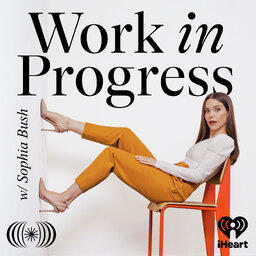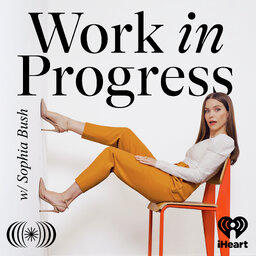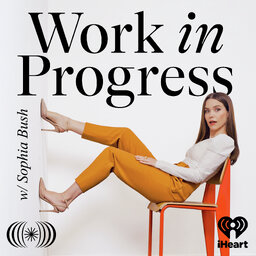Michele Filgate is a contributing editor at Literary Hub and the editor of the critically acclaimed anthology based on her Longreads essay, “What My Mother and I Don’t Talk About.” She sits down with Sophia to discuss why the mother/child bond is so complicated, the reason writing can be so cathartic, how she accidentally set a book on fire, imposter syndrome, and much more. Executive Producers: Sophia Bush & Sim Sarna Supervising Producer: Allison Bresnick Associate Producer: Caitlin Lee Editor: Josh Windisch Assistant Editor: Matt Sasaki Music written by Jack Garratt and produced by Mark Foster Artwork by Kimi Selfridge. This show is brought to you by Brilliant Anatomy.
In 1 playlist(s)
Work in Progress with Sophia Bush
Work in Progress with Sophia Bush features frank, funny, personal, professional, and sometimes even …Social links
Follow podcast
Recent clips

Work in Progress: Mika Brzezinski
1:01:11

Work In Progress: Sophia answers fan questions
23:52

Work in Progress: Rory Uphold
1:07:05
 Work in Progress with Sophia Bush
Work in Progress with Sophia Bush